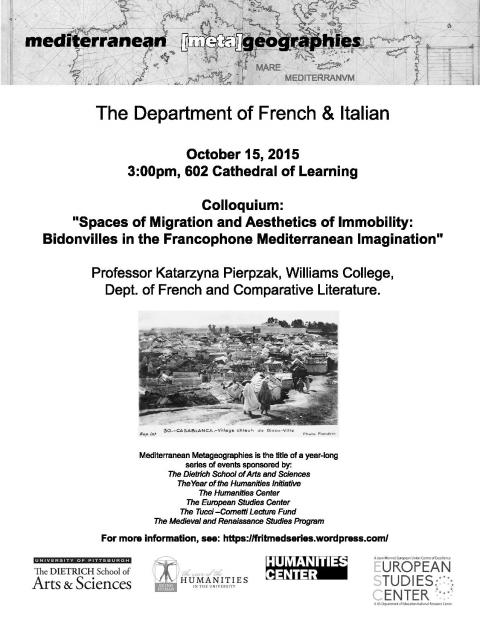
The French term, bidonville, used throughout the Francophone Mediterranean to designate informal settlements and shantytowns, originated in Casablanca in the 1920s when migrant laborers set up encampments around the Carlotti and Central Quarries. From the very outset, the term referenced the materials of large-scale industrial production and its accompanying conditions of clandestine labor and migration. In this presentation, Pieprzak will explore both the history and imagination of these spaces of migration – from the writings of French colonial-era urban planners, to Fanon’s political theory of revolution, to contemporary Moroccan
literature that has turned its gaze on the bidonville as a contemporary condition of poverty. Drawing on theoretical work on “perceptual enclosure” (Sekyi-Otu) and “conditions of appearance” (Gordon), Pieprzak seeks to understand how an aesthetics of immobility has emerged in response to the dynamics of movement, crossing and ambivalence present in ordinary neighborhood life, and the role this aesthetics plays in the articulation of possibilities of self-constitution, self-revision and political agency.
This presentation is part of Mediterranean Metageographies, a series of events in AY 2015-2016 organized around the French and Italian Department’s fall (Mediterranean Studies) and spring (Sicily: How To Do Things With Islands) graduate seminars. For a full description of the events planned, please see the “About” tab of the series website: https://fritmedseries.wordpress.com/about.

